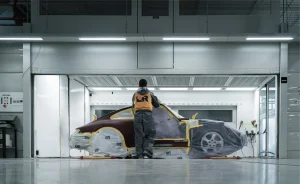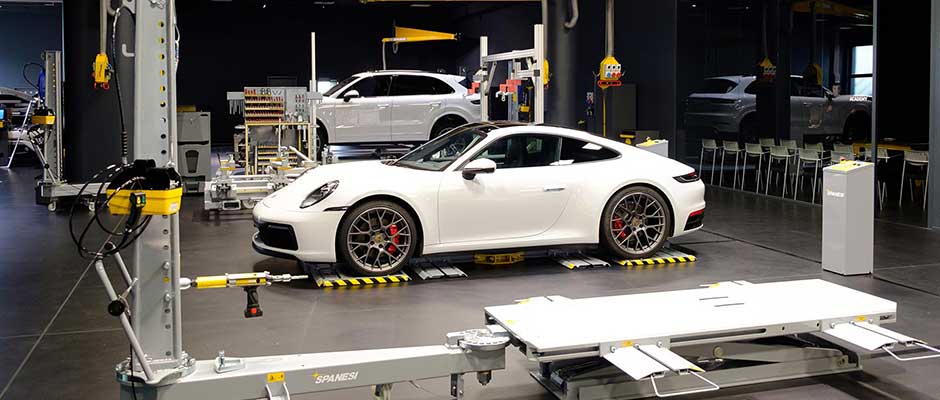Associated Collision Center wants you to be safe and aware, this blog contains great info on The increased demand for equipment and know-how needed to repair an ever-increasingly complex vehicle parc is undeniable.
The increased demand for equipment and know-how needed to repair an ever-increasingly complex vehicle parc is undeniable. The two single-location shop owners FenderBender interviewed for this article face many of the same issues as do the more than 300 respondents to the 2023 FenderBender Industry Survey, including staffing shortages and the training and equipment needed to repair the latest technology. These two shop owners have approached the problem with some common methods and some notable differences.
 One trend, a move away from direct repair programs (DRPs), has remained constant throughout the history of the survey. The number of shops reporting no revenue from DRPs in 2018 was 30%, and five short years later, that number is up to 44%. Both Rob Grieve, who owns Nylund’s Collision Center with his wife, Carol, in the Denver suburb of Englewood, Colorado; and James Wilson, principal owner of ICS Collision Center, in the Wichita, Kansas, suburb of Derby, Kansas, have eschewed DRP agreements from the start and concentrated on following OEM repair procedures and using only OEM parts.
One trend, a move away from direct repair programs (DRPs), has remained constant throughout the history of the survey. The number of shops reporting no revenue from DRPs in 2018 was 30%, and five short years later, that number is up to 44%. Both Rob Grieve, who owns Nylund’s Collision Center with his wife, Carol, in the Denver suburb of Englewood, Colorado; and James Wilson, principal owner of ICS Collision Center, in the Wichita, Kansas, suburb of Derby, Kansas, have eschewed DRP agreements from the start and concentrated on following OEM repair procedures and using only OEM parts.
Survey respondents indicated an increased focus on meeting the needs of newer technology, such as a majority (80%) reporting being equipped to repair aluminum and a healthy minority (28%) capable of repairing advanced structural composites or carbon fiber composites. Keeping up with the equipment and training needs can be overwhelming.
“The technology of the vehicles is ever-changing, and it’s changing so fast that unless you’re engaged in this industry, you’re not going to be fixing the vehicles correctly,” Grieve says. And every day, you’ve got to make the effort to educate yourself.”
Specialization and OEM Certification Help Simplify Complicated Repairs
For Grieve, although his shop does fix other vehicles, the sustainable business model is to specialize in a few makes and models to ensure safe and proper repairs.
“Understanding what really needs to go into the repair takes an enormous amount of research and education on each vehicle,” he says. “We can no longer fix every car that comes through the door. We have to specialize. If I have a Ford, Chevy, a Lexus, Mazda, Volvo, and Porsche in the shop, how can any of my people know everything they need to know about each one of those cars? That is a big hurdle, so let’s narrow it down.”
For many newer models, Grieve says, guests are referred to shops that are certified for those makes and models if those repairs don’t fit into his repair mix.
Nearly 45% of survey respondents reported having at least one OEM certification, with those reporting having six or more (17.19%) taking the lion’s share.
More than half of Nylund’s business is for Lexus vehicles, followed by Toyota, Grieve says, while Subaru and the German marques make up the bulk of the remainder. His shop piloted the Lexus Authorized program, which is offered to independent repairers, and it’s been authorized since December 2020 (the distinction is that Lexus Certified shops must be majority-owned by a Lexus dealership) and is the only Lucid Authorized repair facility in Colorado.
“Both programs are valuable to us,” Grieve says. “Lexus, because of our longstanding reputation for being the experts in repairing these vehicles and taking care of these guests, and Lucid, because they bring a different guest demographic to the shop and are upping our game in the repair of very complex vehicles. Both bring a different level of excitement to the shop floor.”
More than a decade before his shop became Lexus Authorized, Grieve realized his technicians needed additional training to tackle the increasing levels of technology in the new vehicles. He turned to the dealership he buys parts from, who got the ball rolling for his staff to take Lexus certification courses. The brand was already the shop’s mainstay, so when the Lexus Authorized program rolled out, his shop was well positioned to take the next step to become authorized.
“Being part of the Lexus collision program has the added value of much of the training crosses over to Toyota vehicles and their guests and we are currently exploring the Toyota Collision Program as well.”
Reaching the $1M Mark in Kansas
For Wilson, who with his wife, Tera, started ICS Collision Center from the ground up in 2013, the challenge was how to grow his business to reach $1 million in annual sales out of a 10,000-square-foot facility. The shop began by doubling its sales each year but had remained in the $700,000 to $800,000 range, he says. What worked may seem counterintuitive, he says, but it worked: reduce the car count and focus on working with fewer clients “who truly care about safe and proper repairs.”
“We serve our clients’ needs, not insurers’,” he explains. “So, if they want the vehicle repaired properly – it doesn’t matter if it’s a luxury car or a run-of-the-mill 10-year-old car or a fleet customer – they understand that insurance doesn’t cover everything. If we manage those expectations on the front side and do that well, then you know basically we’re educating them so they can make an informed decision, whether or not they choose us. I’m there to serve them, right? We shifted our focus to clients who understood the direction we were going, which was a focus on them receiving safe and proper repairs, not their out-of-pocket expenses.”
 Just as Grieve says his staff will refer his guests to another facility certified for a different make, Wilson recognizes certain situations call for a different shop to care for certain would-be customers’ needs. This requires some time upfront at the point of intake, explaining how his business model differs from that of many area shops.
Just as Grieve says his staff will refer his guests to another facility certified for a different make, Wilson recognizes certain situations call for a different shop to care for certain would-be customers’ needs. This requires some time upfront at the point of intake, explaining how his business model differs from that of many area shops.
“If I cannot manage your expectations on the front side, it’s going to be a train wreck on the back side,” he says. “We slow down on the front side and make sure we actively listen to our client and what they’re looking for.”
A would-be customer more concerned about his or her $1,000 deductible and having a free loaner car is probably not going to be an ICS customer, he explains.
“It’s my job to educate the consumer about what they should expect from us as their chosen repair facility, what the manufacturer states is required and necessary for a safe and proper repair and provide them that documentation as far as knowing your consumer rights here in the state of Kansas. That way, they can make an informed decision.”
Within the first 18 months or so of setting the $1 million goal, Wilson says, the shop hit its goal. It now produces between $1.2 million and $1.3 million per year.
What to know more? please visit our last month’s Each wrong part costs our employees a minimum of 30 minutes. All Blog listing can be found here.

